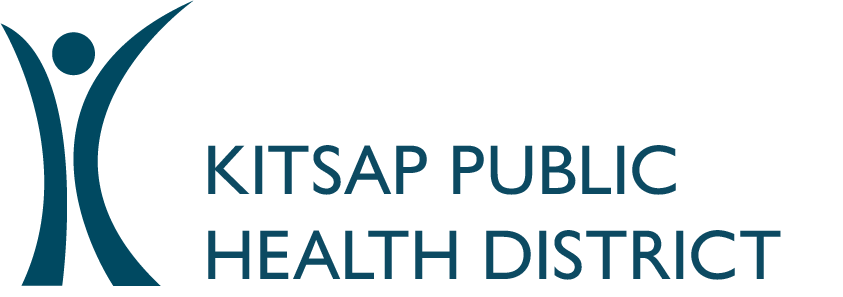Bacteria, viruses, parasites, and other germs in the water can make you sick.
Swimming or wading is a great way to cool off as temperatures soar. Whether you are planning a trip to a local lake, ocean swimming beach, or public pool, be aware that there is always some risk of getting sick. That's why it is important to take steps to protect yourself and people enjoying the water around you.
STAY COOL, STAY HEALTHY!
Don't swim if you or someone in your household has recently been sick, especially if you've had diarrhea.
Check for swimming beach advisories at kitsappublichealth.org/beaches or by calling 360-728-2235. You can also subscribe to receive swimming beach advisories by email or text.
Avoid overcrowded swimming areas and areas with algae, aquatic plants, snails, and ducks or geese.
Use good hygiene:
Shower before entering the water.
Avoid swallowing lake, stream, pool, or ocean water.
Keep children who are not toilet trained out of the water, or use a swim diaper.
Wash your hands with soap and water after using the toilet, changing diapers, and before handling food.
After swimming, immediately shower and vigorously towel dry.
HOW CAN SWIMMING MAKE ME SICK?
The water you swim in can be contaminated with bacteria, viruses, parasites and other germs that make people sick. Often these germs come from fecal matter (poop) carried into the water by people, pets, and wildlife. Some germs can even live in treated water, like chlorinated pools, for days at a time.
The most common swimming-related illness is diarrhea. Other common illnesses include skin rashes, ear pain, cough or congestion, and eye pain. According to the CDC, about 7.2 million Americans get sick every year from diseases spread through water, including both drinking water and water people swim in.
What to know about toxic cyanobacteria
Toxic cyanobacteria (blue-green algae) grow naturally in lakes. Cyanobacteria can create colorful blooms in the water. Sometimes these blooms produce toxins that can make people sick. Cyanobacteria is especially dangerous for animals.
If you notice an algae bloom or discolored water, stay out of the water and contact Kitsap Public Health at 360-728-2235 or online at kitsappublicheatlh.org/concern.
WE MONITOR SWIMMING BEACHES TO HELP KEEP YOU HEALTHY
Kitsap Public Health monitors 30 swimming beaches in Kitsap during summer months (Memorial Day through Labor Day) to check for health risks, including fecal pollution and cyanobacteria. Our team collects water samples at popular swimming areas to test for E. coli bacteria (an indicator that there is fecal pollution in the water). We also watch for cyanobacteria blooms.
We publish health advisories and post signs at swimming areas when bacteria levels are high or there is a cyanobacteria bloom in the water.
Stay up to date:
Subscribe to swimming beach and lake advisories.
See a list of swimming beaches we monitor.
Report health concerns, such as algae blooms, dead fish, or unexplained illnesses in people or pets by calling 360-728-2235 or using our online form at kitsappublichealth.org/concern
MORE WATER SAFETY TIPS TO KEEP IN MIND
Illness isn't the only health risk to keep in mind when swimming.
More than 860 children and teens die every year in the U.S. from drowning. Most of them are swimming, boat, or just playing in or near water.
Make sure you and your loved ones are taking the following steps this summer:
Learn basic swimming and water safety skills.
Wear a life jacket.
Supervise swimmers, especially children, when they are in or near the water. Appoint an adult to be a lookout and establish a buddy system.
Wear a life jacket.
Avoid alcohol and drugs when around water. If you are on medications, avoid swimming if they have side effects that may impair your judgment.
Find more water safety tips here.


.png)
